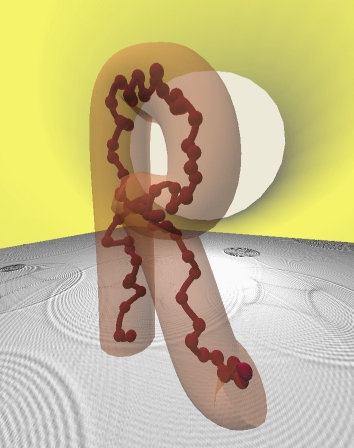# RepTate: Rheology of Entangled Polymers: Toolkit for the Analysis of Theory and Experiments
# --------------------------------------------------------------------------------------------------------
#
# Authors:
# Jorge Ramirez, jorge.ramirez@upm.es
# Victor Boudara, victor.boudara@gmail.com
#
# Useful links:
# http://blogs.upm.es/compsoftmatter/software/reptate/
# https://github.com/jorge-ramirez-upm/RepTate
# http://reptate.readthedocs.io
#
# --------------------------------------------------------------------------------------------------------
#
# Copyright (2018): Jorge Ramirez, Victor Boudara, Universidad Politécnica de Madrid, University of Leeds
#
# This file is part of RepTate.
#
# RepTate is free software: you can redistribute it and/or modify
# it under the terms of the GNU General Public License as published by
# the Free Software Foundation, either version 3 of the License, or
# (at your option) any later version.
#
# RepTate is distributed in the hope that it will be useful,
# but WITHOUT ANY WARRANTY; without even the implied warranty of
# MERCHANTABILITY or FITNESS FOR A PARTICULAR PURPOSE. See the
# GNU General Public License for more details.
#
# You should have received a copy of the GNU General Public License
# along with RepTate. If not, see <http://www.gnu.org/licenses/>.
#
# --------------------------------------------------------------------------------------------------------
"""Module TheoryWLF
WLF file for creating a new theory
"""
import numpy as np
from RepTate.core.Parameter import Parameter, ParameterType, OptType
from RepTate.gui.QTheory import QTheory
[docs]
class TheoryWLF(QTheory):
"""Time-temperature superposition based on a Williams-Landel-Ferry (WLF) equation with two parameters.
* **Function**
.. math::
\\begin{eqnarray}
\\omega(T_r) &= & a_T \\omega(T) \\\\
G(T_r) &= & b_T G(T) \\\\
\\log_{10} a_T &= & \\frac{-B_1 (T-T_r)}{(B_2+T_r)(B_2+T)} \\\\
b_T &= & \\frac{\\rho(T_r)T_r}{\\rho(T)T} = \\frac{(1+\\alpha T)(T_r+273.15)}{(1+\\alpha T_r)(T+273.15)} \\\\
T_g &= &T_g^\\infty - \\frac{C_{T_g}}{M_w}
\\end{eqnarray}
* **Parameters**
- :math:`T_r`: Reference temperature to which the experimental data will be shifted.
- :math:`B_1`: Material parameter, corresponding to :math:`C_1\cdot C_2`, with :math:`C_1` and :math:`C_2` being the standard WLF material parameters.
- :math:`B_2`: Material parameter, corresponding to :math:`C_2-T_r`, :math:`C_2` being the standard WLF material parameter.
- logalpha: Decimal logarithm of the thermal expansion coefficient of the polymer at 0 °C.
- :math:`C_{T_g}`: Material parameter that describes the dependence of :math:`T_g` with :math:`M_w`.
- dx12: Fraction of 1-2 (vynil) units (valid for polybutadiene).
"""
thname = "WLF"
description = "Williams-Landel-Ferry"
citations = []
doi = []
# html_help_file = ''
single_file = (
False # False if the theory can be applied to multiple files simultaneously
)
def __init__(self, name="", parent_dataset=None, axarr=None):
"""**Constructor**"""
super().__init__(name, parent_dataset, axarr)
self.function = self.WLF
self.parameters["Tr"] = Parameter(
name="Tr",
value=25,
description="Reference T to WLF shift the data to",
type=ParameterType.real,
opt_type=OptType.opt,
)
self.parameters["B1"] = Parameter(
name="B1",
value=850,
description="Material parameter B1 for WLF Shift",
type=ParameterType.real,
opt_type=OptType.opt,
)
self.parameters["B2"] = Parameter(
name="B2",
value=126,
description="Material parameter B2 for WLF Shift",
type=ParameterType.real,
opt_type=OptType.opt,
)
self.parameters["logalpha"] = Parameter(
name="logalpha",
value=-3.18,
description="Log_10 of the thermal expansion coefficient at 0 °C",
type=ParameterType.real,
opt_type=OptType.const,
)
self.parameters["CTg"] = Parameter(
name="CTg",
value=14.65,
description="Molecular weight dependence of Tg",
type=ParameterType.real,
opt_type=OptType.const,
)
self.parameters["dx12"] = Parameter(
name="dx12",
value=0,
description="Fraction 1,2 vinyl units (for PBd)",
type=ParameterType.real,
opt_type=OptType.const,
)
self.parameters["vert"] = Parameter(
name="vert",
value=True,
description="Shift vertically",
type=ParameterType.boolean,
opt_type=OptType.const,
display_flag=False,
)
self.parameters["iso"] = Parameter(
name="iso",
value=True,
description="Isofrictional state",
type=ParameterType.boolean,
opt_type=OptType.const,
display_flag=False,
)
self.get_material_parameters()
[docs]
def WLF(self, f=None):
"""WLF function"""
ft = f.data_table
tt = self.tables[f.file_name_short]
tt.num_columns = ft.num_columns
tt.num_rows = ft.num_rows
tt.data = np.zeros((tt.num_rows, tt.num_columns))
Tr = self.parameters["Tr"].value
B1 = self.parameters["B1"].value
B2 = self.parameters["B2"].value
alpha = np.power(10.0, self.parameters["logalpha"].value)
CTg = self.parameters["CTg"].value
iso = self.parameters["iso"].value
vert = self.parameters["vert"].value
Mw = f.file_parameters["Mw"]
tt.data[:, 0] = ft.data[:, 0]
if iso:
B2 += CTg / Mw # - 68.7 * dx12
Trcorrected = Tr - CTg / Mw # + 68.7 * dx12
else:
Trcorrected = Tr
tt.data[:, 1] = np.power(
10.0,
-B1
* (ft.data[:, 0] - Trcorrected)
/ (B2 + Trcorrected)
/ (B2 + ft.data[:, 0]),
)
tt.data[:, 2] = (
(1 + alpha * ft.data[:, 0])
* (Tr + 273.15)
/ (1 + alpha * Tr)
/ (ft.data[:, 0] + 273.15)
)
